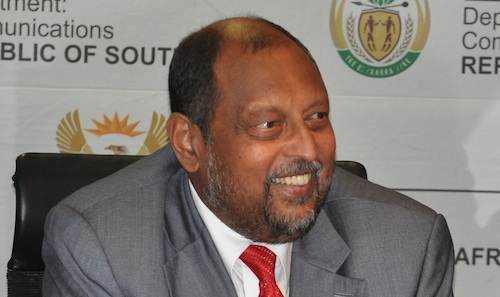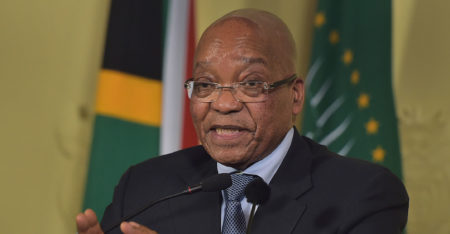
The battle over which standard SA will use for digital terrestrial television rages on, with a plan by the National Association of Manufacturers in Electronics Components (Namec) to contest a decision by cabinet in favour of the European system.
Namec chairman Keith Thabo says the group, along with organised labour, have engaged with communications minister Roy Padayachie and President Jacob Zuma.
The association wants cabinet to reverse its decision that SA will adopt the second generation of the European standard for digital TV.
The group’s plans to contest the decision, first revealed in the Business Report newspaper on Wednesday, are as a result of its belief that a Brazilian version of a Japanese standard, known ISDB-T, would have a more beneficial economic impact than the European offering.
On Monday, TechCentral revealed exclusively that cabinet had endorsed a recommendation by a Southern African Development Community (SADC) task team that the region adopt the European standard.
The news followed a year of uncertainty, during which time the department of communications entertained multiple standards.
Brazil and Japan lobbied hard to have ISDB-T adopted by the region, eventually prompting SADC communications ministers to appoint a task team to examine the issue.
The task team reported back on 25 November, recommending that the region adopt Europe’s DVB-T2, but leaving the door open for individual countries to adopt other standards — provided they meet certain technical guidelines.
Although Padayachie has not yet made a formal announcement on the matter, his adviser, Kuben Govender, has confirmed — in an interview with TechCentral — that cabinet has endorsed DVB-T2.
Govender has confirmed that cabinet ratified the decision at its last meeting of 2010, held on 15 December, and that the cabinet minutes reflect this.
However, Namec is angry at the decision, saying cabinet was “clearly poorly advised” on the value of the Japanese-Brazilian standard. “Government didn’t consult enough with stakeholders,” he says.
Thabo says the department of communications should also not be able to make the decision exclusively. “The department of economic development and the department of science & technology should also have had a say,” he says.
He says government does not understand that the Japanese-Brazilian standard will have a wider impact on economic growth than the European standard. “ISDB-T gives us free access to middleware that we can modify and develop for ourselves. We could end up with our own standard that can be used to generate jobs and encourage small business,” he says.
SA’s decision in 2006 to use the European standard was a bad one to begin with, Thabo says.
“The reason we are in this mess is because the broadcasters managed to persuade late [communications] minister Ivy Matsepe-Casaburri to use the [European] standard. I can’t prove it but money has definitely changed hands somewhere,” he says.
According to Thabo, the only people who will benefit from the European standard are the large broadcasters and established manufacturers.
Late last year, Brazil and Japan, in conjunction with government-owned signal distributor Sentech, conducted a trial of ISDB-T in SA.
Many local engineers called the test a failure, since there was evidence that the signal interfered with established local broadcasts.
However, Thabo says the information that was released on the trial, was provided by a rival group, the SA Digital Broadcasting Association (Sadiba).
Sadiba has never supported the Japanenese-Brazilian standard and Thabo says the group has been trying to “peddle propaganda” to prevent its implementation locally.
However, Sadiba chairman Lynn Mansfield says the group’s aim was to clarify the value of the European standard. “What we were doing was peddling facts,” he says.
Mansfield says the standard SA implements for digital broadcasting shouldn’t matter to manufacturers because they will build the devices used for viewing the signal, no matter which standard is used to do it.
“It makes me believe that they have been offered something by the Japanese, the same way the Japanese offered the Brazilians something,” he says.
He says if cabinet has agreed to go with the European standard then it has made the right choice.
According to Mansfield, rekindling the fight now is pointless. “Unions must not lose sight of the fact that DVB-T2 will be far better for the economy in the long run,” he says. The efficiency of the technology will free up more valuable spectrum that can be used later by telecommunications operators for high-speed wireless Internet. — Candice Jones, TechCentral
See also: Cabinet chooses T2 for digital TV
- Subscribe to our free daily newsletter
- Follow us on Twitter or on Facebook




